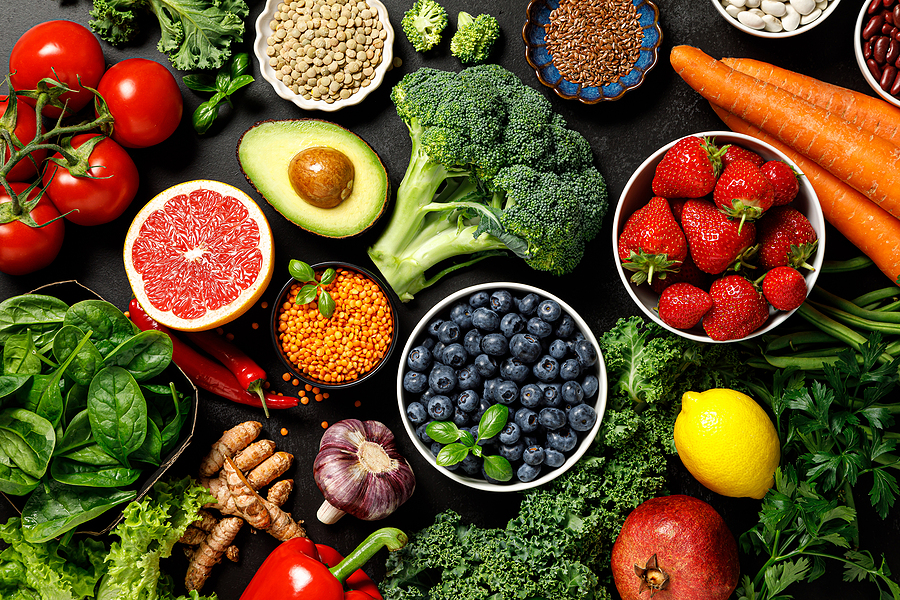Introduction
Table of Contents
Recovery from addiction is difficult because of physical and psychological reliance, severe withdrawal symptoms, and co-occurring mental health conditions.
Long-term healing requires coordinated and comprehensive treatment strategies. Treatment programs should provide specialized care that concurrently addresses mental health and addiction to ensure a successful recovery and enhanced mental well-being.
A sustainable and fruitful recovery path results from this strategy.
In addition, a healthy diet that supports both physical and mental well-being is essential for recovering from addiction.
To provide the necessary energy and building blocks for recovery, a proper diet supports brain function, lowers cravings, and aids in maintaining sobriety.
A successful recovery path is facilitated by a balanced diet, which increases overall resilience.
Superfoods To Help You Recover From Addiction
Superfoods are necessary for sustaining the body while recovering from addiction. These substances and nutrients promote recovery, equilibrium, desire reduction, energy boost, and general well-being.
You can read more about the different ways to help you recover from addiction and maintain a healthy lifestyle.
However, as mentioned above, incorporating superfoods into your diet can be valuable in your recovery journey.
Below is a list of 7 superfoods that can help you recover from addiction quickly and make the process easier—
1. Leafy Vegetables
Leafy Vegetables, such as collard greens, spinach, and kale, are essential for a balanced diet and addiction rehabilitation. They give the body the vital nutrients it needs for healing and aid in reestablishing equilibrium following addiction.
The abundance of vitamins, minerals, and antioxidants in these nutrient powerhouses encourages detoxification, lowers inflammation, and supports brain function, all essential for a quicker recovery.
Due to their cleansing qualities, cruciferous vegetables, including broccoli, cauliflower, and Brussels sprouts, are crucial for addiction recovery.
These cruciferous fruits boost the liver’s function and help remove toxins from the body. They are also rich in fiber, which aids in digestion and a healthy stomach while recovering.
2. Fresh Fruits
Fruits that are still in season are helpful in the fight against addiction. One of the key reasons is that they are stocked with vital vitamins and nutrients that support the body’s immune system and equilibrium restoration.
In addition, the natural sugars in fruits offer a more wholesome alternative to sweet cravings, sometimes linked to addiction.
Citrus fruits, berries, and other berry-rich foods can fight the inflammation and oxidative stress brought on by drug consumption, which can help in addiction recovery.
Berries, like blueberries, enhance memory and cognitive ability, which addiction can badly impact.
Potassium and magnesium, abundant in bananas, help relieve withdrawal symptoms, including anxiety and muscle cramps.
3. Tofu
Increasingly popular among vegans and vegetarians, as well as others looking to improve their general health, is tofu, a flexible plant-based protein.
Recent research has thrown light on its possible function in addiction recovery, even though its benefits are well known for their capacity to boost muscle building and assist in weight loss.
Throughout addiction rehabilitation, the special makeup of tofu, filled with vital amino acids and phytochemicals, has been discovered to support quicker healing and repair of the body and mind.
4. Poultry Products And Lean Fish
Due to their superior nutritional profiles, poultry products, and lean fish are crucial for accelerating the recovery from addiction.
These low-fat, high-essential-amino-acid, protein-rich diets also contain vitamins, minerals, and other nutrients that strengthen the immune system.
A recovering addict can gain many advantages from having these items in their diet, including tissue repair, strength restoration, and a healthy immune system.
These protein-rich diets also aid in regaining muscle mass that may have been lost due to substance addiction.
In addition, the vitamins and minerals included in poultry and fish increase general vigor and foster a sense of well-being, which are crucial for both physical and mental recuperation.
5. Yogurt
Due to its special nutritional makeup, yogurt can help to facilitate a quicker recovery from addiction.
One important element is its high protein content, which can help with tissue healing and rebuilding after substance addiction has harmed tissues.
Yogurt also has probiotics, which are good microorganisms that help maintain healthy gut flora.
This is crucial during the recovery process from addiction since substance usage can upset the balance of gut bacteria, resulting in digestive problems and a weaker immune system.
6. Whole Grains
Whole grains are a type of grain that includes bran, germ, and endosperm as well as all other elements of the original grain.
Whole grains are a great source of fiber, vitamins, and minerals. Refined grains, on the other hand, have had the bran and germ removed.
Whole grains can be extremely important in the process of an addict’s rehabilitation, according to research.
They offer a constant supply of energy, which helps to maintain blood sugar levels and reduce cravings for drugs.
Furthermore, whole grains high fiber content helps with digestion and regulates the gut flora, which has been associated with better mental health and fewer addictive behaviors.
7. Seeds And Nuts
Nuts and seeds provide a number of advantages for addiction recovery. These organic powerhouses are packed with vital nutrients that help the body heal itself and reestablish mental and physical balance.
They are useful allies in the process of healing because they deliver consistent energy, support brain function, and lessen cravings.
For faster recovery for addicts, chia seeds, flaxseeds, pumpkin seeds, and almonds are crucial.
Omega-3 fatty acids found in chia seeds reduce inflammation and enhance cognitive function.
While pumpkin seeds are abundant in magnesium, zinc, and iron, flaxseeds are high in fiber, lignans, and detoxifying qualities.
While seeds and nuts give vital elements for overall well-being, almonds deliver energy, satiety, and Vitamin E.
What Is The Best Diet For Addiction Recover?
A diet for addiction rehabilitation should focus on complete, nutrient-dense foods with crucial vitamins, minerals, and antioxidants that will nourish the body and mind.
Fruits and vegetables, lean proteins, and healthy fats should all be a part of a balanced diet. Salmon and chia seeds are good sources of omega-3 fatty acids, which boost brain health and lower inflammation.
Processed foods, sweet snacks, and alcoholic or caffeine-rich beverages should be avoided because they might cause cravings and impede recovery.
To eliminate pollutants and maintain general health, it’s imperative to stay hydrated throughout the day by drinking enough water.
By practicing mindful eating habits, including paying attention to hunger and fullness cues, people can improve their relationship with food and accelerate long-term healing.
Image Source: BigStockPhoto.com (Licensed)
Related Categories: Food, Health, Reviews








